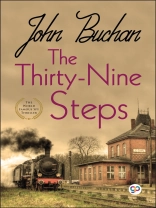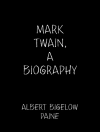John Buchan’s name is known across the world for The Thirty-Nine Steps (1915). In the past hundred years the classic thriller has never been out of print and has inspired numerous adaptations for film, television, radio and stage, beginning with the celebrated version by Alfred Hitchcock. It remains Buchan’s most famous work.
It is the first of five novels featuring Richard Hannay, an all-action hero with a steely determination and an extraordinary knack for getting himself out of sticky situations. The story follows Richard Hannay, who, wrongfully accused of murder, is forced to flee to Scotland pursued by spies as well as the police. A novel about a man who places his country’s interests before his own, it met with great success upon publication, especially in the trenches of the First World War, continues to be regarded as one of the forerunners of the modern day thriller.












